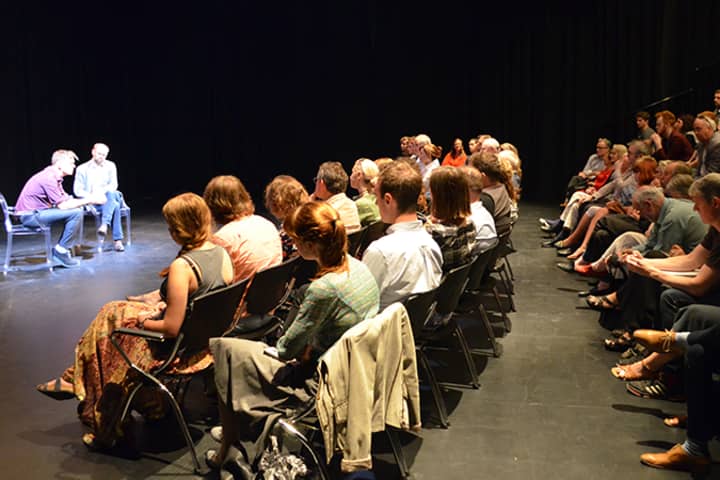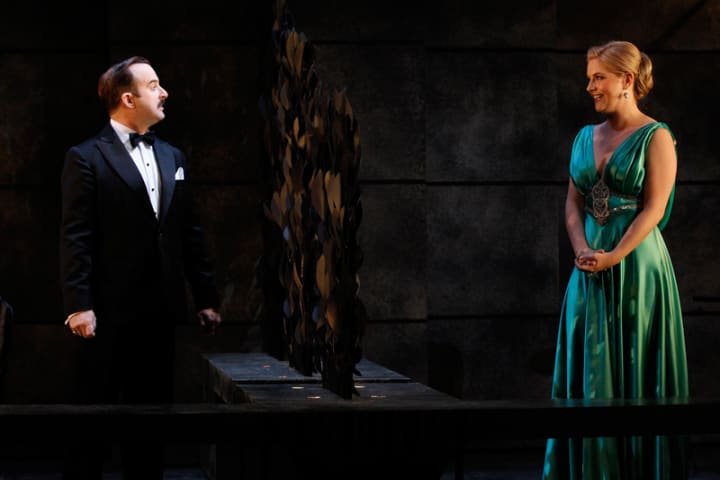There are seven billion people on our planet and each one of them has an accent. Whatever language you speak, you will speak a variation that will betray the place you grew up, your ethnicity, your class, your education, your profession, and your social status. That’s why accents are so important in theatre. They add to the theatrical illusion by dropping the audience quickly into a certain place and time (or, when not so good, leaving them alienated and unconvinced). Within a few precisely accented sentences, actors can do more to define their characters and set the scene than pages of detailed exposition.
According to voice and dialect coach Leith McPherson, within the babble of accented English the same few general types keep cropping up in plays. Irish is one of them. Only last year she worked extensively with the cast of Once, set in a pub in Dublin, and soon she’ll be in rehearsal with the cast of Conor McPherson’s The Weir, oddly enough, also set in a pub. But which among the dozens of possible Irish accents will she chose for the play?
‘Conor makes a reference to rural Ireland,’ says Leith McPherson, ‘and, more specifically, to County Leitrim and County Sligo in the northwest. One of the things which is extraordinary about this play is how it gets through to something universal via the window of quintessential Irishness, tapping into our innate pleasure in storytelling using the Irish love for a good story. You don’t want to undermine that with a difficult accent.
‘So my focus with the actors will be on County Sligo,’ she says. ‘For a couple of reasons. First, it’s a softer accent and easy to listen to. The hard edges of a few Irish accents can be distracting or difficult to understand for the foreign ear. With any of the plays I do, there’s always a balance between authenticity and intelligibility. The worst thing for an accent coach is to be told that the accents were wonderful but no one could understand what was said. That’s a fail. The second reason is that an accent should be something that the actors can get into reasonably easily, and Sligo is not far from many rural Irish accents that actors may have already worked in.’
Leith McPherson studied to be an actor at Queensland University of Technology, but found during her training that she enjoyed voice and accent work more than performing. The Central School in London was the place to learn the trade, so she saved up for a couple of years for fare and tuition and joined Central’s post-graduate Voice Studies program. That was a good decision. This was her element. She even loved phonetics. During her year at Central, practically every voice and accent expert in Britain came in to lecture, and she took her fill of theatre in the capital, watching – or rather listening – to the best stage actors in the world. (She saw the original production of the The Weir in 1998 from Standing Room at the back of the Royal Court Theatre.) After leaving Central, she worked for a few years in various drama schools in Britain, eventually returning to Australia to teach voice in the drama and musical theatre programs at WAAPA. In 2009, she moved to Melbourne and worked at MTC for the first time on August: Osage County. In her eighteen shows since then, McPherson has coached MTC actors in every twang, lilt and drawl from Oklahoma to Boston, from Italy to Islington. Actors, she says, vary a great deal in their accent skills, some have an astonishing facility, others no knack at all. ‘The way I work is very individual,’ she says. ‘It’s a matter of first finding out what the actor’s perception of the accent is, to discover if I need to break that down and build up from scratch, or polish and finesse.
‘An accent should never be a flashy technical exercise,’ she says. ‘You always want, if anything, for people not to comment on the accents at all. Then you’ve done your job. The audience hasn’t been distracted, focussed on the play, rather than the delivery of the vocal work.’
The Weir by Conor McPherson is on at Arts Centre Melbourne, Fairfax Studio from 14 August to 26 September.
Published on 7 August 2015





